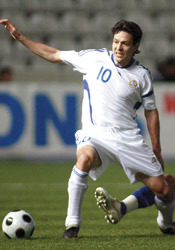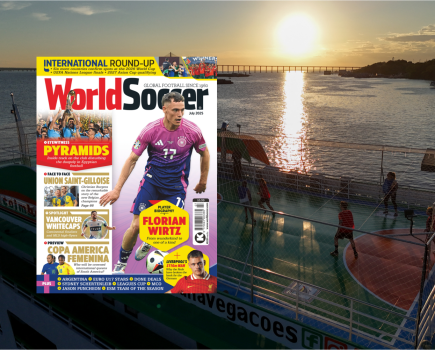
Money remains a problem for Finnish football, but some clubs are in a better position to deal with economic hardship than others.
With the global financial crisis biting into ticket and sponsorship income – and little in the way of broadcasting revenue anyway, there has been a wide divergence in approaches to the problem in the run-up to the new season.
As the richest club in the country HJK have been unaffected, and the Helsinki club’s coach Antti Muurinen flashed their cash to secure the services of FC Lahti defender Pyry Karkainen, iconic Russian striker Valeri Popovitch, midfielders Sebastian Sorsa and Cheyne Fowler, plus striker Juho Makela, who returns permanently to HJK after an unhappy spell in Scotland with Hearts.
HJK will start as overwhelming favourites, but they have been in that situation before and failed to bring home the trophy – not least last year, when they suffered the indignity of having to qualify for Europe via the Cup after finishing fourth in the league.
Honka have kept hold of last season’s joint leading league scorer Aleksandr Kokko, have exciting young talents like 17-year-old midfielder Rasmus Schuller coming through the ranks and also signed some experienced players to guide the young guns, such as goalkeeper Janne Henriksson.
Coach Mika Lehkosuo is one of the best in Finland, developing players to the point where he can sell them to Swedish or Norwegian clubs, but ensuring he has ready-made replacements ready from the club’s renowned youth programme. Tomi Maanoja, Tuomo Turunen and Ville Jalasto have all left to play abroad in the last year, but Honka have managed their departures well and should challenge HJK.
The other moneybags club this year are TPS. They have brought in Pasi Rautiainen, and the wild-haired one quickly captured skillful winger Mikko Manninen – described by one newspaper as “the best player in the league” last year – from Haka. Much will depend on Manninen’s form and fitness as he looks to illuminate their sometimes leaden midfield, but with the likes of Riku Riski, Kaspar Hamalainen, Mika Aaritalo and Sami Rahmonen set to become more influential it could be a good year.
Tampere United coach Ari Hjelm has rebuilt his squad on numerous occasions since taking over in 2001 and the signs are he may have pulled it off again. Looking for young players to revitalise an ageing squad, Juha Pirinen, Johannes Mononen, Aleksei Kangaskolkka, Ilari Ruuth and Aapo Lappalainen have arrived at Ratina Stadium. All 20 or under and playing a vital role in a free-flowing side, they have given the fans reason to be optimistic.
Inter Turku have had a difficult close season, with the departures of Diego Corpache, Mika Makitalo (both to Haka), Jos Hooiveld and Dominic Chatto necessitating a near-total rebuild of last year’s title-winning team. Aristides Pertot has returned from city rivals TPS and Dutch striker Giullano Grot made his loan move from Helmond Sport permanent, but the rest of Inter’s team looks young and inexperienced.
FC Lahti were last season’s surprise package and have managed to retain the services of an ageing Jari Litmanen for what will surely be one last year at his home-town club, who will enjoy their first European campaign in the inaugural Europa League. If Litmanen and newcomer Mohamed Fofana hit form and fitness, they will trouble the best in the league.
In 2008 Haka were taken over by Seppo Koskinen, a nightclub owner who wanted to increase the celebrity count among the Haka crowd and sign more attractive players to lure women to games. New signings Makitalo and Corpache should provide a solid spine,though their effect on the womenfolk of Valkeakoski is unsure. Last season’s star signing Cherno Samba is free to find a new club after failing to impress coach Olli Huttunen, and with Popovitch and Fowler leaving for HJK, the pressure is on the rebuilt Haka to improve.
The other factory-town club in the league is MyPa, who have struggled to replace the experienced players they have lost. New signings from HJK, Tuomas Aho and Miikka Multaharju, should provide enough stability to keep them safe, but that’s about all.
VPS recruited wisely, bringing in old war horses like Pekka Kainu and acquiring a wealth of promising youngsters from nearby lower-league teams, so they could surprise a few people.
New owners secured the immediate financial future of FF Jaro, but after losing Jussi Aalto they will rely heavily on Mikko Hyyrynen to score their goals. Their squad is not the deepest though, and a few injuries could see them get into trouble.
IFK Mariehamn will need to gel quickly if they are to avoid a relegation battle, while new clubs JJK and KuPS will struggle in the top flight, along with RoPS, whose stadium renovation will see them play the first half of the season at a temporary ground. The bottom team will go down automatically, while the 13th placed club will go into the play-offs.






